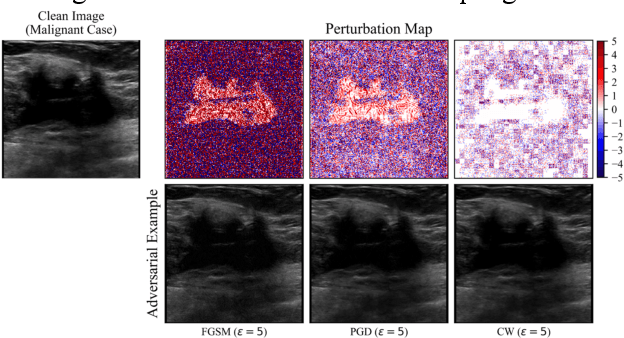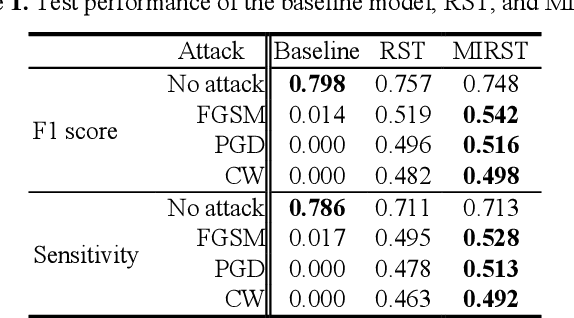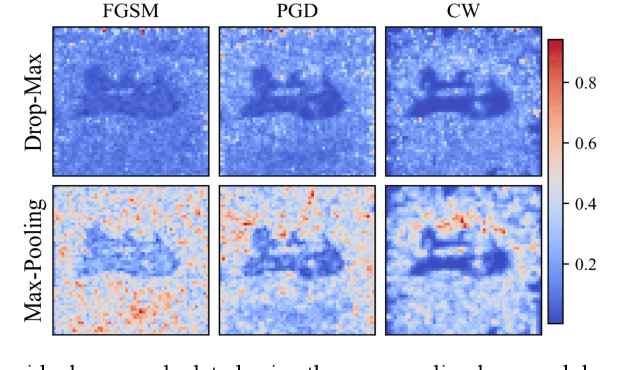MIRST-DM: Multi-Instance RST with Drop-Max Layer for Robust Classification of Breast Cancer
Paper and Code
May 02, 2022



Robust self-training (RST) can augment the adversarial robustness of image classification models without significantly sacrificing models' generalizability. However, RST and other state-of-the-art defense approaches failed to preserve the generalizability and reproduce their good adversarial robustness on small medical image sets. In this work, we propose the Multi-instance RST with a drop-max layer, namely MIRST-DM, which involves a sequence of iteratively generated adversarial instances during training to learn smoother decision boundaries on small datasets. The proposed drop-max layer eliminates unstable features and helps learn representations that are robust to image perturbations. The proposed approach was validated using a small breast ultrasound dataset with 1,190 images. The results demonstrate that the proposed approach achieves state-of-the-art adversarial robustness against three prevalent attacks.
 Add to Chrome
Add to Chrome Add to Firefox
Add to Firefox Add to Edge
Add to Edge